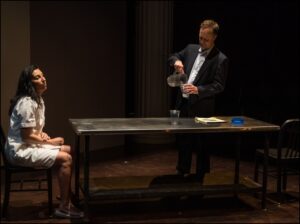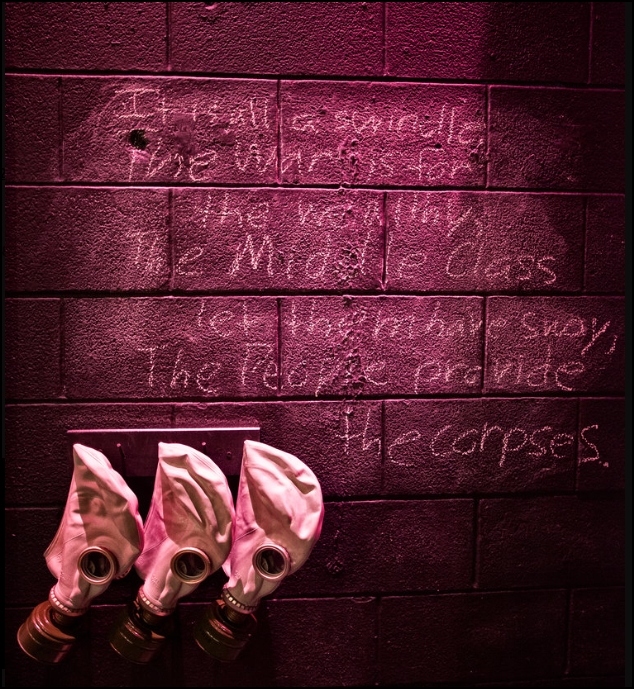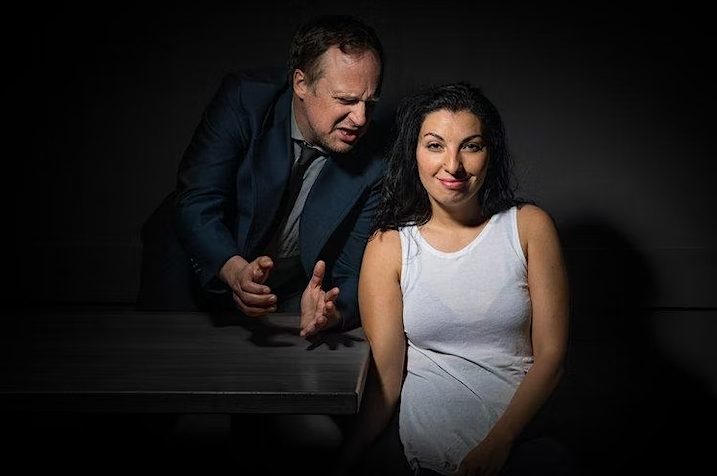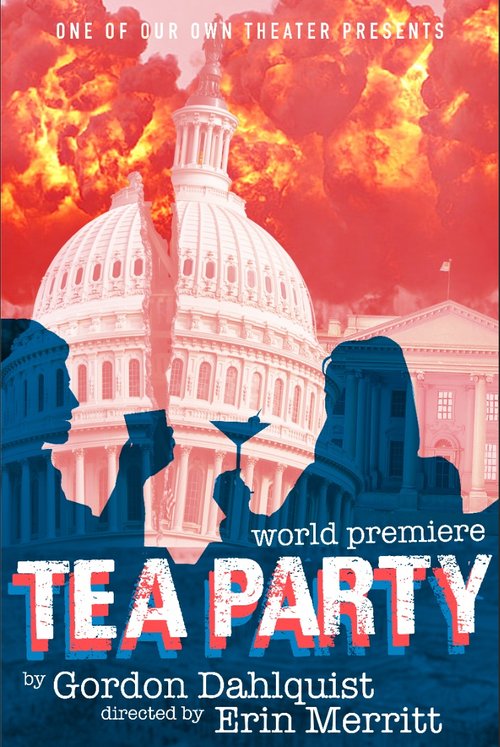By Susan Dunn
Tea Party opens on a black box stage with political interrogation. No set distracts us from the fireworks to come. A government agent (Cassidy Brown) rips into a political prisoner, exposing her liberal, left-wing persuasions. A right-wing prisoner joins the cross-examination, and is physically brutalized and bloodied by the agent.

Many such scenes ensue, transitioned by music of competing voices ranging from choral to hard rock. The first scenes are from the present, then revert to the past, and finally address the future, playing out in that sequence. One is left hoping the scenes come together into a sensible tableau by the end of the play. More on that later.
Dahlquist’s play posits that the Tea Party movement–which began during the presidency of Barack Obama and effectively over time changed our politics to a zero-sum game–has created this nation’s current divisions.

I think there is a real misunderstanding about what the Tea Party movement is. The Tea Party movement is a sentiment that government is broken, free market principles have been abandoned, with both parties to blame, and if we don’t do something soon, this exceptional country will be lost.
…a strong cast of featured actors…
So agrees director Erin Merritt, in her director’s notes. She exhorts us to recognize this nationwide divide and governmental failure and get involved to bridge it, or civil war will be our future.
Characters represent left-wing, right-wing, and government. All sides are shown with their problems and power struggles exposed. Cassidy Brown, first as a government agent, then as a Dutch journalist, leads us through key scenes, with a strong cast of featured actors assuming different roles. Special mention goes to Anthony Cistaro and Bob Greene who cover their parts with diverse movement and vocal projection.

Other performers sometimes suffer from static blocking and muffled delivery to an audience surrounding a thrust stage. The many violent scenes are carried out with finesse through the guidance of Dave Maier.
Although delving into the Tea Party is most timely, and delivered to a mainly liberal and politically receptive part of the country, this reviewer believes that Dahlquist’s message could use more dramatic tools to help the audience lock in and see a path to activism. I was also left with the feeling the playwright missed the boat on addressing the impact negative social media has had on our national discourse: enabling the spread of disinformation, distrust, and animosity.
And as mentioned earlier, I felt that better identification of various scenes would have also gone a long way to sustain this viewer’s interest in this otherwise engaging production. This play, and its message, deserve it.
-30-
 Since arriving in California from New York in 1991, Susan Dunn has been on the executive boards of Hillbarn Theatre, Altarena Playhouse, Berkeley Playhouse, Virago Theatre and Island City Opera, where she is a development director and stage manager.
Since arriving in California from New York in 1991, Susan Dunn has been on the executive boards of Hillbarn Theatre, Altarena Playhouse, Berkeley Playhouse, Virago Theatre and Island City Opera, where she is a development director and stage manager.
An enthusiastic advocate for new productions and local playwrights, she is a voting member of the SF Bay Area Theatre Critics Circle, and a recipient of a 2015 Alameda County Arts Leadership Award. Contact: susanmdunn@yahoo.com

